At Airmic, geopolitical expert Charles Hecker urged risk managers to abandon outdated assumptions and prepare for a world defined by constant disruption
As global alliances fracture, international institutions lose authority, and conflict increasingly impacts business operations, risk managers face a stark new reality. The era of relative geopolitical stability is over – and it is not coming back.
Instead, organisations must operate in a world defined by unpredictability, power fragmentation, and escalating economic and political friction. Navigating this volatility is no longer the job of diplomats alone. It is now central to corporate strategy, risk management, and long-term value protection.
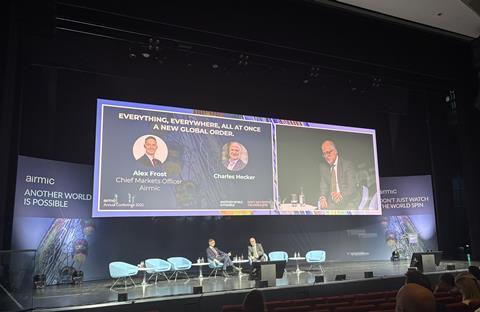
At Airmic’s annual conference, geopolitical expert and author Charles Hecker delivered a direct message to the profession: the rules of the global game have changed – and risk leaders must change with them.
In a wide-ranging conversation with Airmic CMO Alexander Frost, Hecker dissected the forces reshaping international affairs and outlined the mindset shift risk professionals must embrace to stay ahead. Here are five strategic lessons from the session, and what they mean for today’s corporate risk agenda.
1. The world won’t “settle down” – prepare for sustained disruption
Risk managers often assume that today’s geopolitical chaos is a blip – that eventually, a new equilibrium will emerge. But Hecker urged a rethink. The instability we’re experiencing may not be transitional. It may be the new normal.
“I think we have to try to figure out one of two things. And that is, are we in a period of incredible disruption… or is this period of disruption, this discomfort, this lack of familiar trappings – is this the new status quo?”
He warned against “recency bias” – the human tendency to believe the current moment is uniquely bad – but said this should not distract from the real dangers: political unpredictability, the breakdown of international norms, and the erosion of trust between states.
- Takeaway: Risk functions must stop waiting for clarity. Build strategies that assume prolonged uncertainty. Design flexible decision-making frameworks that can operate in multiple, conflicting realities.
2. Globalisation is retreating – and the consequences are accelerating
For decades, businesses benefited from the logic of open markets, stable trade agreements and global institutions. But those foundations are eroding. Trade wars, sanctions, political intervention and supply chain fragmentation are now business-as-usual.
“Globalisation is under enormous pressure,” said Hecker. “It’s now contracting a lot faster and a lot more violently than we thought it would.”
He argued that earlier ideas like nearshoring, friendshoring or de-risking now seem “quaint,” given how quickly economic nationalism has hardened. Attempts to realign supply chains come with far greater pain – politically and financially – than many organisations anticipated.
The result is a world where regional trade blocs and security alliances no longer overlap, where friends and rivals shift depending on sector, and where assumptions about openness must be continually revisited.
- Takeaway: Map your supply chain and investment footprint against political volatility, not just economic opportunity. Identify where exposure to geopolitical risk is no longer tolerable – and where resilience must be prioritised.
3. Political risk is no longer just “over there” – it’s at home too
Risk managers often treat political instability as something that happens far away – in “frontier” or “emerging” markets. But Hecker warned that Western democracies are no longer immune. In fact, some are among the most unpredictable.
“The United States is now a personality-driven jurisdiction. It’s no longer driven by its political institutions… the predictability goes out the window.”
This shift, he explained, destabilises global governance as a whole. When a former anchor state becomes erratic, international institutions lose authority, trade becomes transactional, and treaties are increasingly short-term.
And this dynamic extends beyond the US. Brexit demonstrated that even markets perceived as “safe” can behave in politically disruptive ways. Europe is now one of the busiest portfolios for geopolitical analysts – a far cry from its recent past.
- Takeaway: Don’t silo political risk into foreign affairs. Factor domestic political volatility – including regulation, polarisation and institutional fragility – into core strategic and compliance planning.
4. Scenario planning is your best defence – but only if you do it right
Forecasting has failed. That was Hecker’s blunt message to risk managers. From the invasion of Ukraine to the fall of Kabul, from Brexit to the pandemic, many of the biggest geopolitical shocks of recent years caught forecasters off guard.
“The only thing that we’re getting these days is outliers that we haven’t prepared for. So forecasting in its own way is setting a trap.”
Hecker urged organisations to abandon likelihood-based forecasting and instead invest in robust scenario planning. The key is not to predict the future, but to build resilience across a range of plausible futures – best case, worst case, and everything in between.
- Takeaway: Move away from single-point risk assessments. Develop contrasting geopolitical scenarios and test your business model against each – even the uncomfortable ones.
5. Never stop challenging assumptions – even in “safe” markets
Perhaps Hecker’s most urgent warning was the need to rethink how companies engage with the countries they operate in. Drawing on his research into Western businesses in post-Soviet Russia, he reflected on how optimism and success can cloud judgement.
“Companies tend to look at countries as markets, and they overlook the fact that countries are political and geopolitical animals and will behave according to rules that don’t necessarily follow the same laws as markets.”
In boom times, he explained, firms stop reassessing their strategic assumptions. In Russia, many organisations “drank a little bit of their own Kool-Aid” – letting the profits roll in without confronting the changing political context. By the time risk crystallised, it was too late.
Hecker argued this mindset applies not just to Russia or China, but to every jurisdiction – including democracies. “We used to have a Europe analyst who… was able to sleep at his desk all day long,” he joked. “Europe analysts now are some of the busiest geopolitical risk analysts in the world.”
- Takeaway: Establish a regular cadence of geopolitical stress-testing across all markets – not just those deemed risky. Success is not a substitute for scrutiny.
From strategic fog to structured resilience
As Hecker concluded, the biggest danger for businesses is not just external shocks – it’s clinging to outdated tools and mindsets. The future will not be defined by clarity or stability, but by ambiguity and acceleration. Risk managers who embrace that reality will be best placed to lead.
“We’ve had this complete inversion of where risk lives… I’m sure for almost all of us, risk used to reside in the future,” he explained. “The problem… is that risk now resides in the immediate future and that’s something we’re not accustomed to.”
This shift demands more than just a philosophical adjustment, it requires a tactical rethink of how risk functions operate. Long-term scenario planning must now be accompanied by short-cycle monitoring, rapid escalation protocols, and pre-agreed action playbooks. Immediacy changes everything, from how organisations absorb news, to how boards are briefed, how crises are detected, and how quickly responses are deployed.
In this environment, resilience is no longer about bouncing back – it’s about seeing around corners, adapting to parallel realities, and knowing that geopolitical shocks are not “if,” but “when.”
BLOG: Airmic Conference 2025 Daily News Summary

Stay tuned - live reporting from the Airmic Conference this week - all in one place
- 1
- 2
 Currently
reading
Currently
reading
Airmic 2025: Five lessons for risk managers from Charles Hecker
- 4
- 5
- 6
- 7
- 8
- 9
- 10
- 11
- 12
- 13
- 14
- 15
- 16




































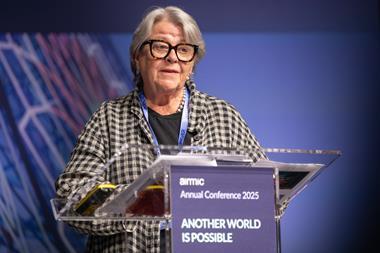
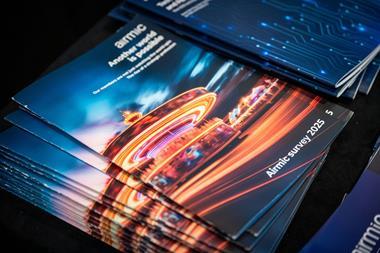


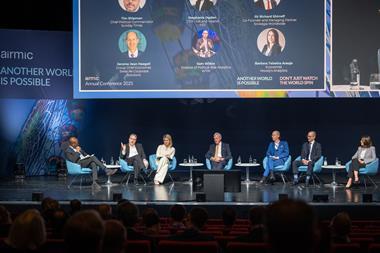
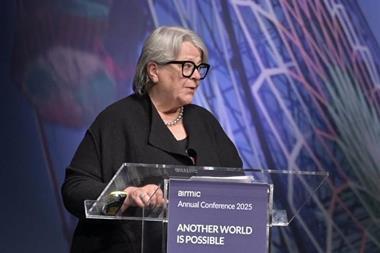



No comments yet